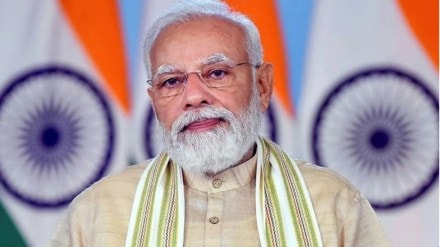Prime Minister Narendra Modi on Thursday underscored the need for agile economic decisions and their rapid implementation to ensure that the country doesn’t fail to take full advantage of the fourth industrial revolution.
“India was lagging behind in taking advantage of the first, second and third industrial revolutions.
“Now at the time of the fourth industrial revolution, India will also have to take fast decisions and they will have to be implemented rapidly,” the Prime Minister said in his address at the national conference of labour ministers of all states and union territories through video conferencing.
The Prime Minister’s comments come at a time the four labour codes passed by Parliament between August 2009 and September 2020 are yet to be implemented as states are yet to notify the final rules thereunder.
Modi said: “The country is now changing, reforming, simplifying labour laws. With this in mind, 29 labour laws have been converted into four simple labour codes.
Also read: Eight years of systemic reforms increased India’s macroeconomic stability: RBI MPC member Ashima Goyal
“The codes will ensure the empowerment of workers via minimum wages, job security, social security and health security.”
Of the four codes, the wage code was notified on August 8, 2019 and the three other codes — on industrial relations (IR), social security (SS) and occupation safety health & working conditions (OSH) — on September 29, 2020.
Since labour is in the concurrent list of the constitution, rules are required to be framed by both by the Centre and the state governments.
Union labour ministry sources said till now five states/UTs including West Bengal, have not released draft rules under the wage code, nine including Rajasthan and West Bengal for IR code, 10 including Andhra Pradesh and Rajasthan under social security code and 11 including Rajasthan and West Bengal under the OSH code.
The codes provide for a combination of reformist and social-security steps for boosting labour productivity.
Delays in their implementation might hit India’s prospects of attracting fresh investments, at a time fixed asset creation in the economy needs to gather pace for the much-awaited economic revival.
Meanwhile, the Prime Minister asked the states/UTs to make full use of Rs 38,000 crore meant for the building and construction workers lying idle with them.
As per the Building and Other Construction Workers’ Welfare Cess Act, 1996, all construction activities incurring cost of above Rs 10 lakh are bound to deposit cess at 1% (in some states, 2%) of the cost of construction to the state BoCW board.
The cess is collected from government/public and private sectors.
“I have been told that out of this cess, about Rs 38,000 crore has still not been utilised by the states”, the Prime Minister said.
According to the labour ministry, a total of Rs 83,549 crore has been collected under the building and other construction workers (BoCW) welfare boards across all states till July 1 this year of which only Rs 45,584 crore has been spent. There are around 51 million registered building and construction workers in the country.
